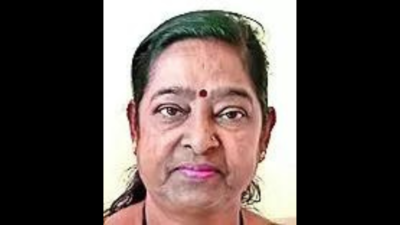NAGPUR: Kamla Gattu (pictured) became an Indian citizen last week, ending three decades of living on long-term visa. An ethnic Telugu who once resided in elite Clifton area of Karachi, her journey to Indian citizenship underscores the complex narratives of migration, partition, and cultural identity of those who straddle two worlds yet find a sense of belonging in one.
Kamla’s story, unlike many immigrants applying under the Citizenship Amendment Act (CAA) in Nagpur, follows a different path. While many Sindh-origin immigrants seek refuge through the CAA, Kamla secured her citizenship through naturalisation, a process that took her more than 12 years of residence in India.
Her story sheds light on the lesser-known community of Telugus who settled in Sindh during British rule and stayed on post-partition.
Her journey began in the 1990s when she moved to India from Karachi, where her family had lived since the 1930s after migrating from the Telugu-speaking regions of undivided India.
Kamla’s parents Manaji Bankar and Monabai had moved to Karachi seeking better opportunities, and the family stayed on post-independence. Kamla and her sister Bhagwanti eventually married into Telugu families in Nagpur -a decision influenced by necessity. “There were hardly any Telugus back there in Karachi to get a match,” Kamla said Sunday.
Rajesh Jhambhia of Sind Hindi Panchayat, an NGO assisting immigrants, helped her apply for Indian citizenship and provided other necessary help.
Unlike the expedited citizenship process offered under CAA, Kamla had to endure the long process of naturalisation. She applied for citizenship in 2022, and despite CAA becoming effective in 2024, her application was processed under the traditional route.
Her perseverance paid off last week when she received the official red card, signifying her new status as an Indian citizen. Bhagwanti had also recently received her red card. However, the joy of citizenship is tempered by the reality of family separation. Kamla’s two brothers remain in Pakistan. Both their wives are Gujarati Hindus. “I went there only twice when I was a Pakistani citizen. Now, as an Indian, I can only go on a visit visa. I wish the rules could be relaxed,” Kamla said.
Kamla said: “We used to live in a flat at Clifton ,and the neighbours were cordial.”




